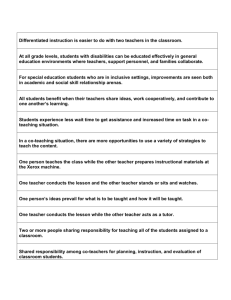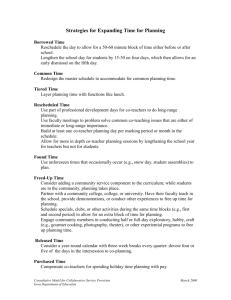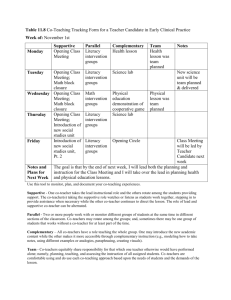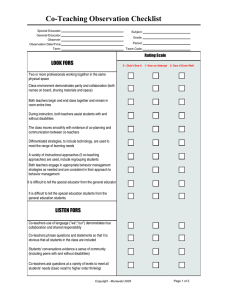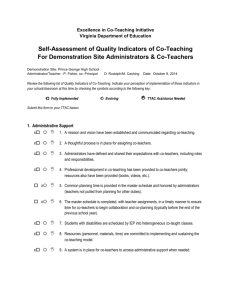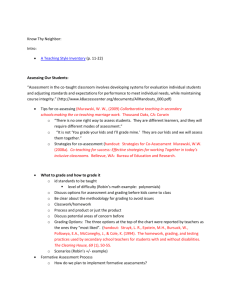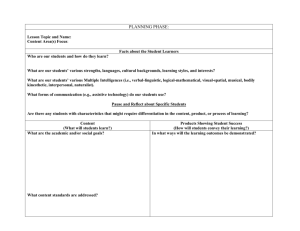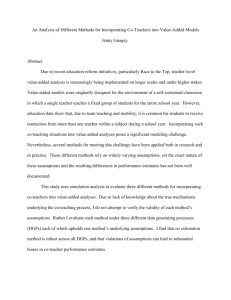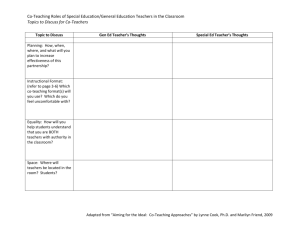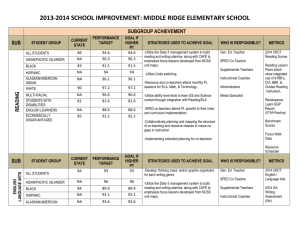I-TELL Observation for Co
advertisement
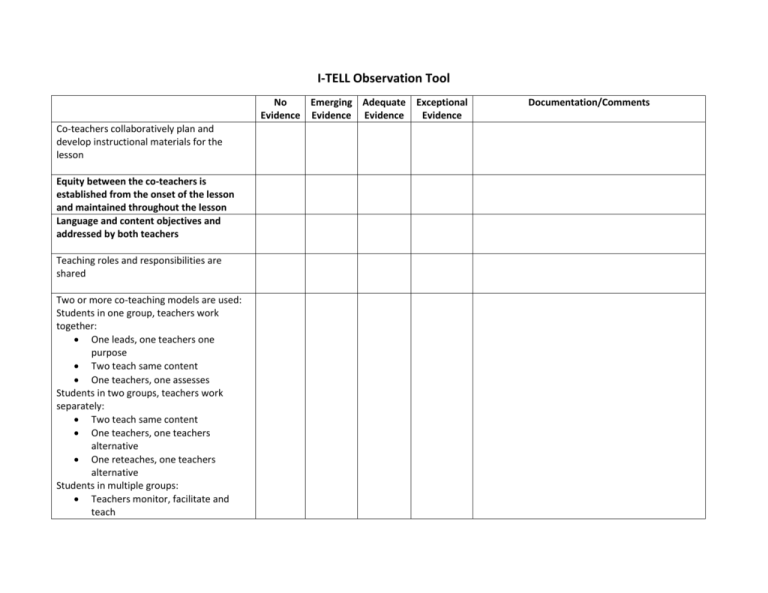
I-TELL Observation Tool No Emerging Adequate Exceptional Evidence Evidence Evidence Evidence Co-teachers collaboratively plan and develop instructional materials for the lesson Equity between the co-teachers is established from the onset of the lesson and maintained throughout the lesson Language and content objectives and addressed by both teachers Teaching roles and responsibilities are shared Two or more co-teaching models are used: Students in one group, teachers work together: One leads, one teachers one purpose Two teach same content One teachers, one assesses Students in two groups, teachers work separately: Two teach same content One teachers, one teachers alternative One reteaches, one teachers alternative Students in multiple groups: Teachers monitor, facilitate and teach Documentation/Comments Students are grouped purposefully in meaningful ways throughout the lesson Co-teachers interact with students and each other in ways that enhance student learning Co-teachers are familiar with and respond to the learning needs of all the students Co-teachers implement appropriate differentiated strategies for teaching academic language and content Co-teachers demonstrate respect and collegiality for each other throughout the lesson Co-teachers apply appropriate visual, graphic, ,linguistic and interpersonal scaffolds Co-teachers establish high levels of engagement and ensure all four language skills to be integrated: listening, speaking, reading, and writing Co-teachers collaboratively conduct formative and summative assessments Honigsfeld, A., & Dove, M. (2015). Collaboration and Co-Teaching for English Learners: A Leader’s Guide. Thousand Oaks, CA: Corwin
